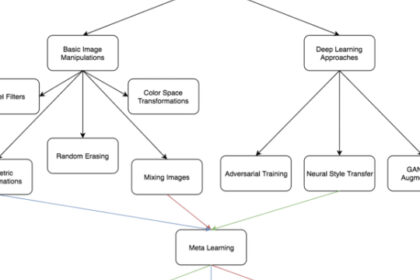Artificial intelligence (AI) is rapidly transforming industries across the globe, and healthcare is no exception. The integration of AI into medical technology promises to revolutionize patient care, improve diagnostic accuracy, streamline administrative processes, and accelerate drug discovery. This article explores the multifaceted ways in which artificial intelligence is reshaping the healthcare landscape, highlighting its potential to improve outcomes and enhance the overall patient experience. From AI-powered diagnostic tools to personalized treatment plans, we delve into the current applications and future possibilities of AI in healthcare, emphasizing the critical role it plays in advancing medical technology and enhancing patient care.
- The Dawn of AI in Healthcare: A Paradigm Shift
- Enhancing Diagnostics with AI-Powered Medical Technology
- Personalized Treatment Plans: Tailoring Care with AI
- Genetic Analysis and Drug Response Prediction
- Lifestyle Recommendations and Behavioral Interventions
- Remote Patient Monitoring and Telehealth
- Streamlining Healthcare Operations with AI
- AI in Drug Discovery and Development
- Identifying Drug Targets and Predicting Efficacy
- Optimizing Clinical Trial Design
- Personalized Drug Development
- Addressing the Challenges and Ethical Considerations of AI in Healthcare
- The Future of AI in Healthcare: A Vision of Transformation

The Dawn of AI in Healthcare: A Paradigm Shift
The healthcare industry has long been challenged by increasing costs, aging populations, and the growing complexity of medical knowledge. Artificial intelligence offers a powerful solution to these challenges by automating tasks, analyzing vast datasets, and providing insights that would be impossible for humans alone to uncover. This paradigm shift is driven by advances in machine learning, natural language processing, and computer vision, which enable AI systems to perform tasks such as diagnosing diseases, predicting patient outcomes, and personalizing treatment plans with unprecedented accuracy and efficiency.
The application of AI in healthcare is not merely about replacing human doctors and nurses; rather, it’s about augmenting their capabilities and empowering them with the tools they need to provide better, more efficient care. By leveraging the power of AI, healthcare providers can focus on what they do best: providing compassionate, personalized care to their patients. This collaborative approach, where humans and AI work together, promises to unlock new possibilities in medical technology and transform the way healthcare is delivered.
Enhancing Diagnostics with AI-Powered Medical Technology
One of the most promising applications of artificial intelligence in healthcare lies in its ability to enhance diagnostic accuracy and speed. AI-powered medical technology can analyze medical images, such as X-rays, CT scans, and MRIs, with remarkable precision, often surpassing the capabilities of human radiologists. This can lead to earlier and more accurate diagnoses, which can be critical for improving patient outcomes, especially in diseases like cancer and cardiovascular conditions.
AI-Driven Image Analysis
AI algorithms are trained on vast datasets of medical images, allowing them to identify subtle patterns and anomalies that might be missed by the human eye. For example, AI systems can detect early signs of lung cancer on CT scans, identify diabetic retinopathy in retinal images, and diagnose skin cancer with high accuracy using dermatoscopic images. This capability not only improves diagnostic accuracy but also reduces the workload on radiologists and other medical professionals, allowing them to focus on more complex cases.
Predictive Diagnostics and Risk Assessment
Beyond image analysis, AI can also be used to predict the likelihood of a patient developing a particular disease based on their medical history, genetic information, and lifestyle factors. Machine learning models can analyze these data to identify individuals at high risk for conditions like heart disease, diabetes, and Alzheimer’s disease, allowing for early intervention and preventive measures. This proactive approach to healthcare can significantly improve patient outcomes and reduce the overall burden on the healthcare system.
- Example: An AI-powered risk assessment tool could analyze a patient’s electronic health record (EHR) to identify factors that increase their risk of developing heart disease, such as high blood pressure, high cholesterol, and a family history of heart problems. The system could then recommend lifestyle changes, medications, or further testing to mitigate the risk.
- Case Study: A diabetes management app uses AI to analyze a patient’s blood glucose levels, diet, and activity data to provide personalized recommendations for managing their condition. The app can also provide reminders to take medication, schedule appointments, and track progress towards their goals.
- Link to a page on your website explaining your company’s AI-powered diagnostic tools (Anchor Text: AI-powered diagnostic tools)
- Link to a blog post about the importance of data privacy in healthcare (Anchor Text: data privacy in healthcare)
- Link to a case study showcasing how your AI solutions have improved patient outcomes (Anchor Text: improved patient outcomes)
- Link to the FDA’s website for information on AI in medical devices (https://www.fda.gov/) (Anchor Text: FDA guidelines)
- Link to a reputable source on HIPAA regulations (https://www.hhs.gov/) (Anchor Text: HIPAA regulations)
- Link to a research article on the use of AI in drug discovery (https://www.nature.com/) (Anchor Text: AI in drug discovery research)
Streamlining Diagnostic Workflows
AI can also streamline diagnostic workflows by automating tasks such as image processing, report generation, and appointment scheduling. This can significantly reduce the time it takes to get a diagnosis, which can be crucial in emergency situations. For example, AI-powered systems can prioritize urgent cases based on the severity of the findings, ensuring that patients with the most critical conditions are seen first.
Personalized Treatment Plans: Tailoring Care with AI
Artificial intelligence enables healthcare providers to develop personalized treatment plans that are tailored to the individual needs of each patient. By analyzing a patient’s genetic information, medical history, lifestyle factors, and treatment response, AI algorithms can predict how they will respond to different therapies and recommend the most effective course of action. This personalized approach to medicine, often referred to as precision medicine, has the potential to revolutionize the way diseases are treated, leading to better outcomes and fewer side effects.
Genetic Analysis and Drug Response Prediction
AI can analyze a patient’s genetic makeup to identify variations that may affect their response to certain medications. This information can be used to select the most appropriate drug and dosage for each patient, minimizing the risk of adverse reactions and maximizing the effectiveness of the treatment. For example, AI can predict how a patient will respond to chemotherapy based on their genetic profile, allowing oncologists to tailor treatment plans to the individual characteristics of each patient.
Lifestyle Recommendations and Behavioral Interventions
In addition to drug selection, AI can also be used to provide personalized lifestyle recommendations and behavioral interventions. By analyzing a patient’s activity levels, diet, and sleep patterns, AI algorithms can identify areas where they can make improvements to their health. The system can then provide personalized recommendations and support to help them achieve their goals, such as losing weight, quitting smoking, or managing stress.
Remote Patient Monitoring and Telehealth
AI-powered remote patient monitoring systems can track a patient’s vital signs, activity levels, and other health data from the comfort of their own home. This allows healthcare providers to monitor patients remotely and intervene early if they detect any signs of deterioration. Telehealth platforms can also use AI to provide virtual consultations, diagnose conditions, and prescribe medications remotely, improving access to care for patients in rural areas or those with mobility issues.
Streamlining Healthcare Operations with AI
Beyond diagnostics and treatment, artificial intelligence can also be used to streamline healthcare operations and improve efficiency. AI-powered systems can automate administrative tasks, optimize resource allocation, and improve supply chain management, freeing up healthcare providers to focus on patient care. This can lead to significant cost savings and improved patient satisfaction.
Automating Administrative Tasks
AI can automate many of the administrative tasks that consume a significant amount of time and resources in healthcare organizations. For example, AI-powered systems can automate appointment scheduling, insurance claims processing, and medical coding, reducing the workload on administrative staff and minimizing errors. Chatbots can also be used to answer patient questions, provide information, and schedule appointments, improving patient engagement and satisfaction.
Optimizing Resource Allocation
AI can analyze data on patient flow, staffing levels, and resource utilization to optimize resource allocation in hospitals and clinics. This can help to reduce wait times, improve bed utilization, and ensure that resources are available where they are needed most. For example, AI can predict patient admissions and discharges, allowing hospitals to adjust staffing levels and allocate beds accordingly.
Improving Supply Chain Management
AI can be used to improve supply chain management in healthcare organizations by predicting demand for medical supplies, optimizing inventory levels, and preventing stockouts. This can help to reduce costs, improve efficiency, and ensure that healthcare providers have the supplies they need to provide care. AI can also track the movement of medical supplies and equipment, ensuring that they are available when and where they are needed.
AI in Drug Discovery and Development
The pharmaceutical industry is increasingly leveraging artificial intelligence to accelerate the drug discovery and development process. AI can analyze vast datasets of biological and chemical information to identify potential drug targets, predict the efficacy and safety of new drugs, and optimize clinical trial design. This can significantly reduce the time and cost of bringing new drugs to market, leading to faster access to life-saving treatments for patients.
Identifying Drug Targets and Predicting Efficacy
AI algorithms can analyze genomic data, proteomic data, and other biological information to identify potential drug targets and predict the efficacy of new drugs. This can help researchers to focus their efforts on the most promising drug candidates, reducing the number of failed experiments and accelerating the drug discovery process. Machine learning models can also predict how a drug will interact with different proteins and other molecules in the body, providing insights into its mechanism of action and potential side effects.
Optimizing Clinical Trial Design
AI can be used to optimize clinical trial design by identifying the most suitable patients for participation, predicting patient outcomes, and monitoring patient safety. This can help to reduce the cost and duration of clinical trials, while also improving the chances of success. For example, AI can analyze patient data to identify individuals who are most likely to respond to a particular drug, ensuring that the clinical trial is conducted on a population that is most likely to benefit from the treatment.
Personalized Drug Development
AI is enabling the development of personalized drugs that are tailored to the individual characteristics of each patient. By analyzing a patient’s genetic information, medical history, and lifestyle factors, AI algorithms can identify the most effective drug and dosage for that individual. This personalized approach to drug development has the potential to revolutionize the way diseases are treated, leading to better outcomes and fewer side effects.
Addressing the Challenges and Ethical Considerations of AI in Healthcare
While the potential benefits of artificial intelligence in healthcare are immense, it is important to address the challenges and ethical considerations associated with its implementation. These include data privacy and security, algorithmic bias, and the need for transparency and accountability. Addressing these challenges is crucial to ensure that AI is used responsibly and ethically in healthcare.
Data Privacy and Security
AI systems rely on vast amounts of data to learn and make predictions. This data often includes sensitive patient information, such as medical records, genetic data, and lifestyle information. It is essential to ensure that this data is protected from unauthorized access and misuse. Healthcare organizations must implement robust data security measures and comply with privacy regulations, such as HIPAA, to safeguard patient data.
Algorithmic Bias
AI algorithms can perpetuate and amplify existing biases in the data they are trained on. This can lead to unfair or discriminatory outcomes, particularly for marginalized populations. It is important to ensure that AI algorithms are trained on diverse and representative datasets and that they are regularly audited for bias. Healthcare organizations must also be transparent about the limitations of AI algorithms and the potential for bias.
Transparency and Accountability
It is important to understand how AI algorithms make decisions and to hold them accountable for their actions. This requires transparency in the design and development of AI systems and the ability to explain their predictions and recommendations. Healthcare organizations must also establish clear lines of responsibility for the use of AI in healthcare and ensure that there are mechanisms in place to address errors and unintended consequences.
The Future of AI in Healthcare: A Vision of Transformation
The future of artificial intelligence in healthcare is bright, with the potential to transform virtually every aspect of medical technology and patient care. As AI technology continues to advance, we can expect to see even more innovative applications emerge, leading to better outcomes, reduced costs, and improved patient experiences.
Predictive Healthcare
AI will enable a shift from reactive to predictive healthcare, where diseases are detected and treated before they cause significant harm. AI-powered systems will analyze vast datasets of patient information to identify individuals at high risk for developing certain conditions, allowing for early intervention and preventive measures. This proactive approach to healthcare will significantly improve patient outcomes and reduce the overall burden on the healthcare system.
Autonomous Healthcare Systems
In the future, we may see the development of autonomous healthcare systems that can diagnose and treat patients without human intervention. These systems could be used in remote areas or in situations where human healthcare providers are not available. However, it is important to ensure that these systems are safe, reliable, and ethical, and that they are used in a way that complements and supports human healthcare providers.
Enhanced Human Capabilities
Ultimately, the goal of AI in healthcare is not to replace human doctors and nurses, but to augment their capabilities and empower them with the tools they need to provide better, more efficient care. AI will handle routine tasks, analyze vast datasets, and provide insights that would be impossible for humans alone to uncover, freeing up healthcare providers to focus on what they do best: providing compassionate, personalized care to their patients.
In conclusion, artificial intelligence is poised to revolutionize healthcare by enhancing medical technology and transforming patient care. From AI-powered diagnostics and personalized treatment plans to streamlined operations and accelerated drug discovery, the potential benefits of AI in healthcare are immense. By addressing the challenges and ethical considerations associated with its implementation, we can ensure that AI is used responsibly and ethically to improve the health and well-being of people around the world.
Internal Linking Suggestions:
External Linking Suggestions:









